How could awards for Jewish pop culture be complete without books!? We are the people of the book, after all. (Yes, we made this joke last year. Yes, we’re gonna keep making this joke.) It’s been a great year for books both with Jewish themes and by stand-out Jewish authors. A hearty mazel tov to the winners for 5780…
Bonus: You can get all these books right here on Bookshop! Support independent bookstores!!
JUMP AHEAD: FICTION / NONFICTION / YOUNG ADULT / VISUALS
The Best Fiction
The Best Jewish Novel
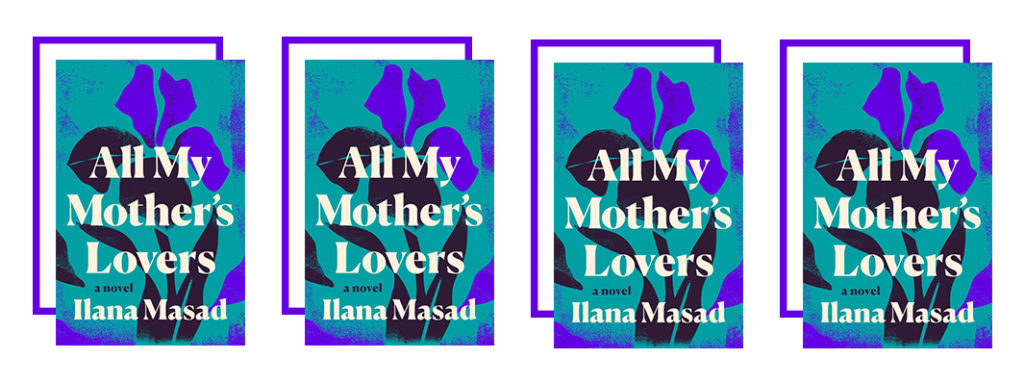
Ilana Masad’s debut novel, All My Mother’s Lovers, takes the top Alma for books this year. It is the story of Maggie, a queer Jewish 27-year-old whose mom dies in a car crash at the beginning of the novel. The plot takes place over just a few days, during the shiva for Maggie’s mom, and explores what it means to lose a loved one as well as the complex relationships between mothers and daughters. It’s everything you want, and need, in a book that deals with grief and complicated families — all through a Jewish lens.
As Masad, who is Israeli-American, told Alma in May, “Mourning rituals might not always be beautiful or comfortable or easy, but they tend to be, if nothing else, quite practical, and shivas certainly are. A shiva means that the bereaved are not left alone for too long, much as they might wish to be; it requires that they engage with the world just enough so as to remember how to function, just a little bit; it requires that others bring food to the bereaved, providing them with sustenance and removing the need to care for the self during the time of the most acute mourning. And, of course, shivas are places where stories are told: about the deceased, about their family, about other dead people, about memories long buried, about new life that’s recently come into the world. It’s such a deeply human ritual.”
Get All My Mothers Lovers here.
The Best Fiction Debut
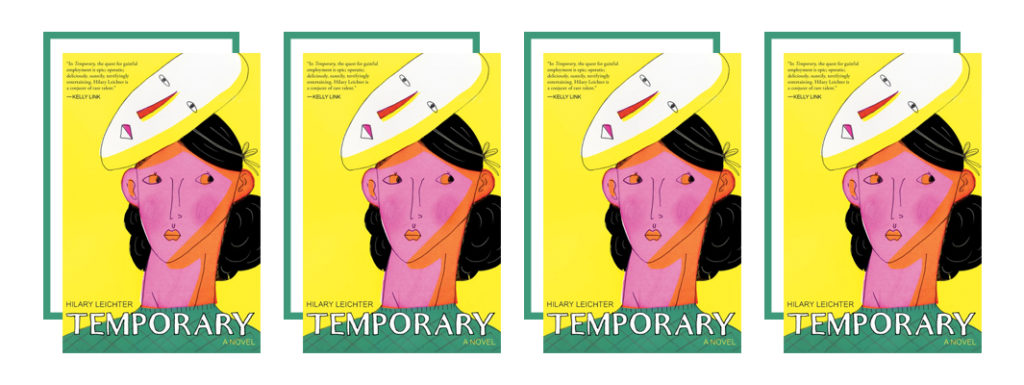
The protagonist of Temporary is nameless, and she is going from one temporary job to another. Hilary Leichter’s debut is deliciously weird, and we were unable to put it down.
We loved the review of Temporary by Parul Seghal in the New York Times: “Temporary reads like a comic and mournful Alice in Wonderland set in the gig economy, an eerily precise portrait of ourselves in a cracked mirror. As the Red Queen told Alice, seizing her wrist and goading her on for a race: ‘It takes all the running you can do, to keep in the same place. If you want to get somewhere else, you must run at least twice as fast as that!'”
Get Temporary here.
The Best Jewish Fantasy
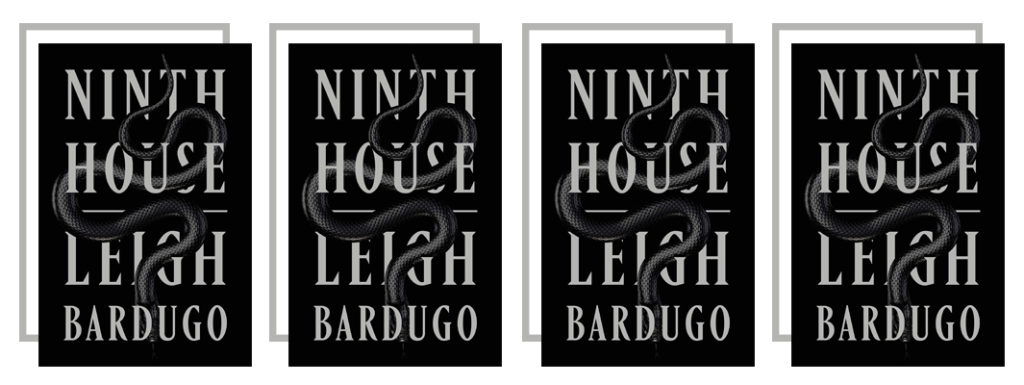
Jewish author Leigh Bardugo’s first adult novel is not to be missed. (Bardugo is most famous for her series of YA fantasy novels Six of Crows and Shadow and Bone.) Ninth House is set at Yale, telling the story of Jewish antihero Galaxy “Alex” Stern. Alex is a 20-year-old high school drop-out with a troubled past who mysteriously gets a full ride to Yale… if she agrees to monitor the activities of the eight secret societies on campus. Oh, and Alex can see dead people. It’s smart, dark, and the perfect fantasy read.
As we wrote in our fall books preview, Alex’s Jewishness is weaved throughout the background of the book. Early on you learn about “her grandma’s mishmash of Ladino sayings” and it’s honestly the first time we’ve ever seen the Judeo-Spanish language play a role in the plot of a major American novel.
Get Ninth House here.
The Best Biblical Retelling
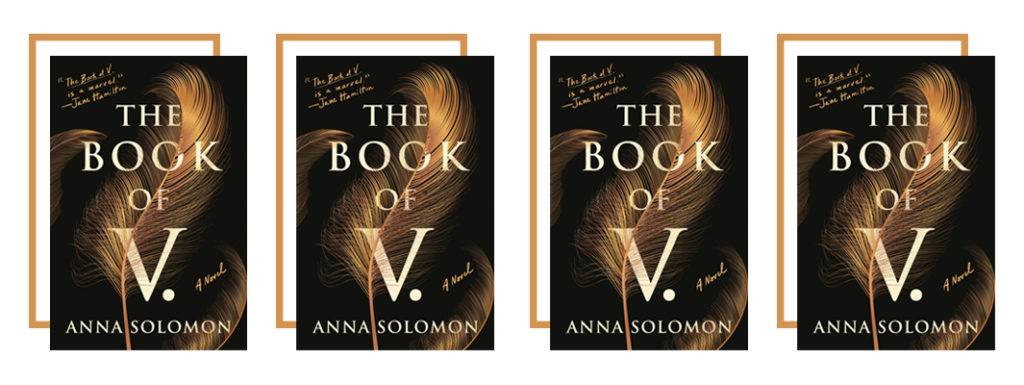
This year’s best biblical retelling is, hands down, Anna Solomon’s The Book of V., which retells the classic Purim story of Vashti and Esther. At its heart, the wide-ranging novel is about the relationships between women and it covers three different timelines: Ancient Persia, where we get the tale of Esther and Vashti; 1970s New England, where Vivian, a senator’s wife, flees to her friend’s house after a disastrous night; and modern-day Brooklyn, where Lily is navigating being a mom to two young daughters.
“As a kid, I believed that Esther was the hero,” Solomon explained to Kveller. “And I dressed up as Esther like all the other girls and I bought that story. But there was always this sort of niggling voice in my head, like, What’s the deal with Vashti? What’s so bad about her? And why do they think she’s a leper? Also, Where does she go? Those questions stayed with me.” We’re so happy they did — because they turned into this remarkable novel.
Get The Book of V. here.
The Best Jewish Romance
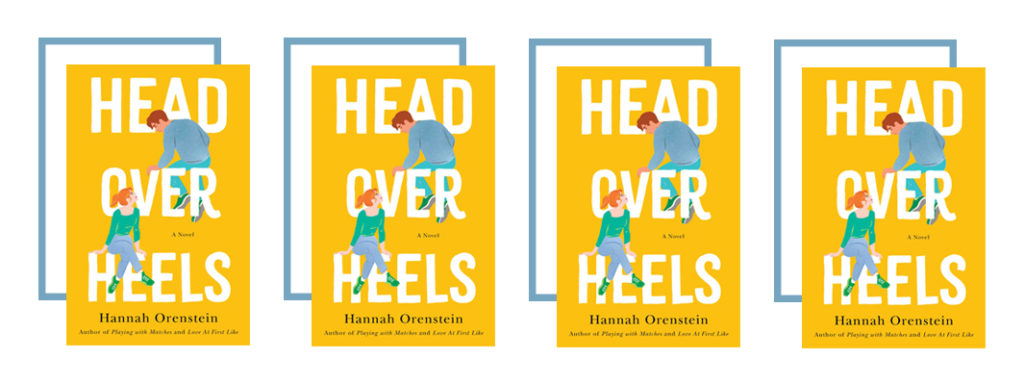
A romance loosely based on Aly Raisman, one of our favorite Jewish athletes of all time!? Hell yes. Hannah Orenstein’s newest romance novel Head Over Heels is very loosely based on Aly Raisman’s life, if she hadn’t made the 2012 Olympic team and if she had dated a football player much more successful than Colton Underwood. The protagonist is Avery, a Jewish gymnast who gets injured during the Olympic trials and sees all her dreams spiral away from her. She ends up in L.A., fails out of college, and starts partying hard — until she meets Tyler, a back-up quarterback for the L.A. Rams. Fast forward (that was all in the first few chapters) and Tyler and Avery have broken up, with Avery moving back home to a Boston suburb with her parents. She has no purpose, no goals, until she’s offered an assistant coaching position for a local girl who is an Olympic hopeful. It doesn’t hurt that her head coach is ridiculously cute.
Why is this the best Jewish romance of the year? Head Over Heels doesn’t focus solely on the romantic plot line; it dives into questions of abusive coaches and doctors in gymnastics, what it means for these young girls to push their bodies to the limits, and what you do when your dreams of athletic glory disappear in an instant.
Get Head Over Heels here.
The Best Jewish Historical Fiction
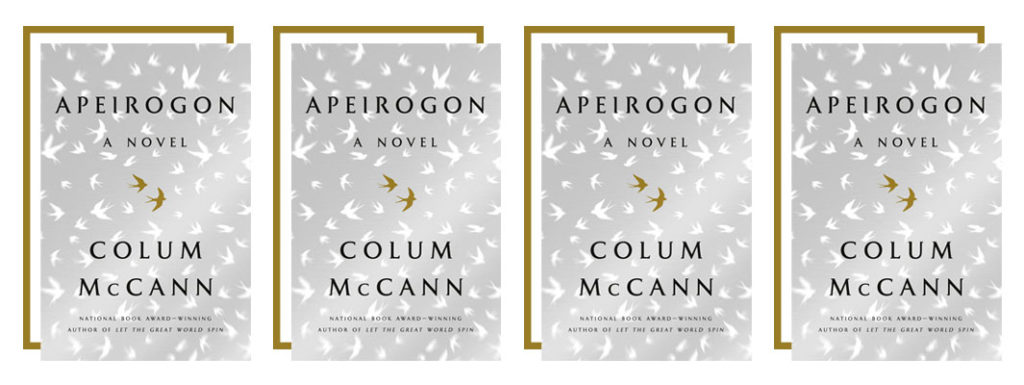
Okay, Colum McCann is actually the only non-Jewish author on this list, but this story was so Jewish and interesting — it deserves to be here (even if it got very mixed reviews!). Set in Israel and Palestine, Apeirogon tells the true story of two fathers who are united by grief: Israeli Rami Elhanan, whose 13-year-old daughter, Smadar, was killed in a suicide bombing in 1997, and Palestinian Bassam Aramin, whose 10-year-old daughter, Abir, was killed by an Israeli soldier in 2007.
What makes it historical fiction is that even though Rami and Bassam’s stories are at the heart of the novel, McCann spirals out and traces the roots of the conflict.
Get Apeirogon here.
The Best Nonfiction
The Best Jewish Nonfiction
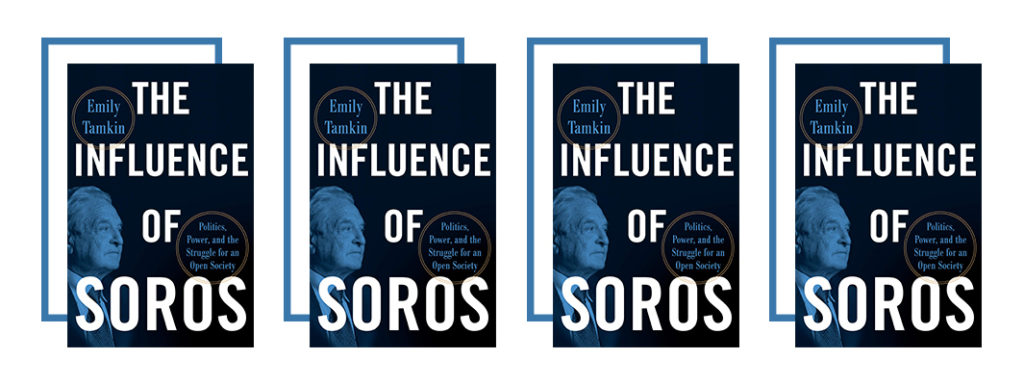
This year, George Soros turned 90. The elderly Jewish philanthropist billionaire is at the center of many insidious anti-Semitic conspiracy theories, and his place in the anti-Semitic imagination does not seem to be going anywhere anytime soon. (See: the accusation he was “paying” Black Lives Matter protestors this past summer.) Jewish journalist Emily Tamkin dives into the origin of these conspiracy theories — and what makes them stick. But, The Influence of Soros is not just a look at Soro’s connection to so much anti-Semitic conspiracies, but the actual impact Soros has had — financially — on so many causes.
As Tamkin explains, the theories around Soros are essentially a “perfect anti-Semitism.” Why? “Let’s think about the reason that a Jewish person would want to “invade a country with foreigners.” What you’re saying is that Jewish American, that Jewish Hungarian, that Jewish whatever, is not really of that country — and that’s why they’re trying to undermine it. It’s the idea of perpetual otherness that you’ll never really be of this place, no matter if you’re from there, no matter how many years you’ve spent there — there’s nothing you can do. The idea that it’s the Jew who corrupts the nation, either through his own being or by adding people from another place — not considering that these people are fleeing some of the most horrific experiences known to humankind, but that they’re being brought in because the Jew is trying to corrupt the nation — that is just, in my mind, powerful anti-Semitic sentiment. It’s the otherness, but it’s also the element of the puppeteer: The idea that there is anybody who’s bringing these people and they’re not, of their own agency and of their own will, fleeing.”
A thoughtful, compelling read on George Soros that we wish we could send to every anti-Semitic troll on social media.
Get The Influence of Soros here.
The Best Jewish Memoir
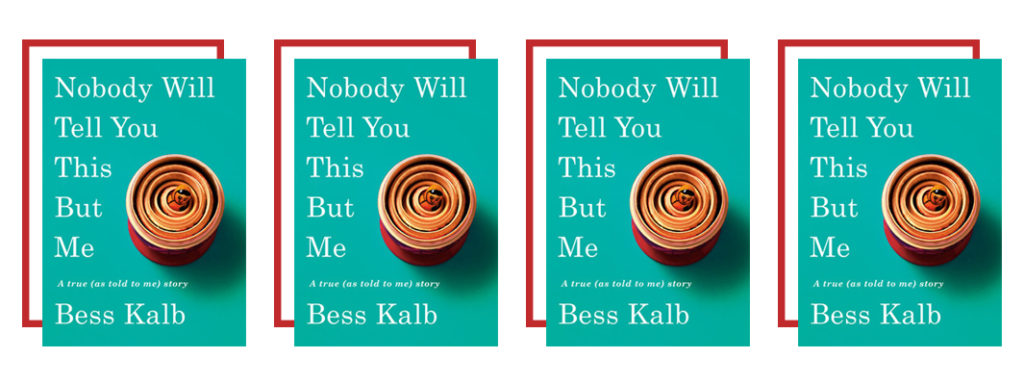
Bess Kalb’s memoir, Nobody Will Tell You This But Me, is told from the perspective of her grandmother, Bobby, with whom she had a very close relationship. Bobby passed away at 90, and Bess captures her voice beautifully. You will cry, laugh, call your mom/grandma/maternal figures in your life, and cry some more. It’s a very Jewish story and highlights the powerful bonds between grandmothers and their granddaughters. Again: You will cry.
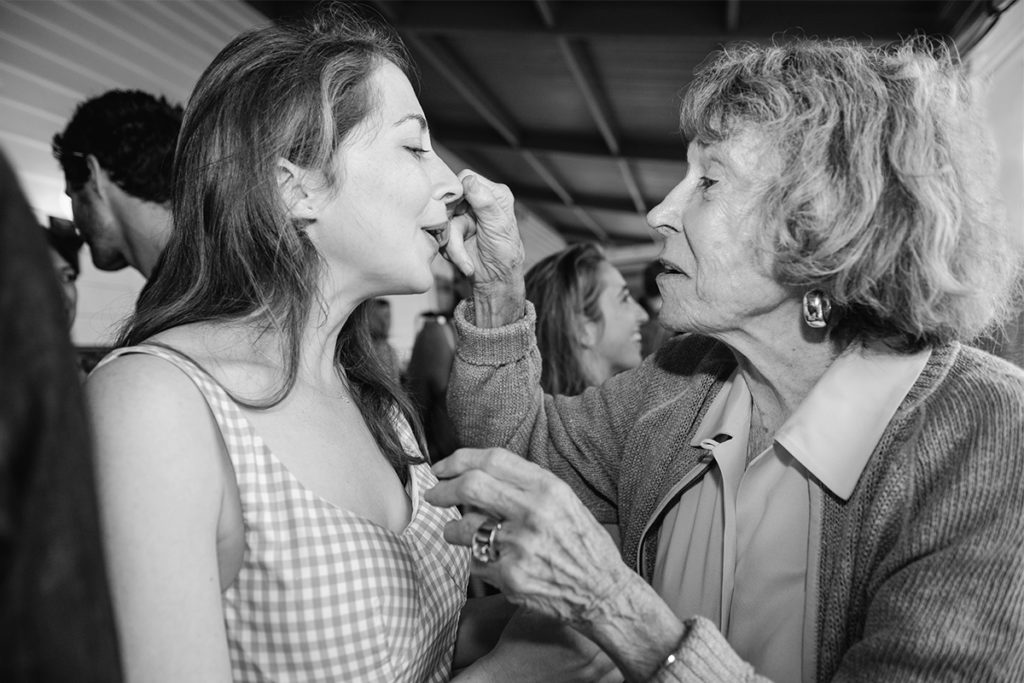
As Bess told Alma, “There is no other way to tell my grandma’s life story than in her own words. That’s how her story was told to me. In telling a life story, the goal is to bring somebody to life, to make them feel fully realized, and make them feel available to the reader. There’s no way to do that, in my opinion, about my grandma, than in her own words. So much of her story is not only what happened to her, but but how she told it. In getting a sense of who she is, and what her agenda is and what her perspective is, there’s a way that I could describe it, but it’s just so much more evocative and meaningful and true when she’s the one saying it.”
Get Nobody Will Tell You This But Me here.
The Best Nonfiction Debut
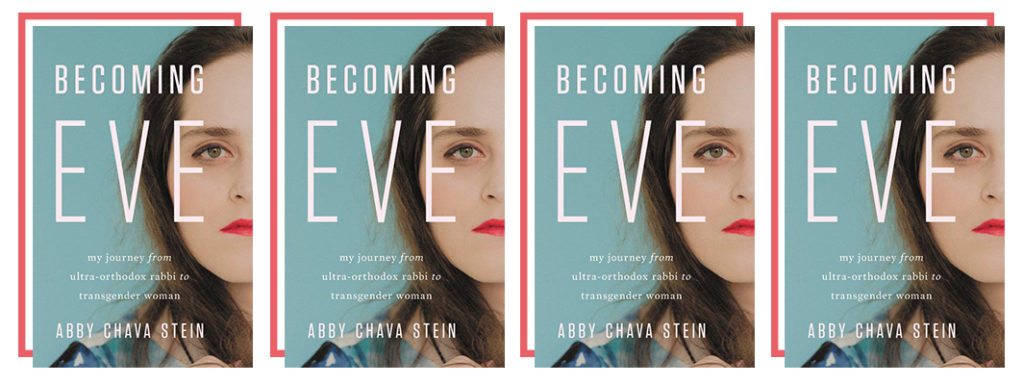
Reading Becoming Eve, you would never know that Abby Stein’s second language is English. Stein changed queer history when she came out as transgender in 2015. She grew up in an ultra-Orthodox community in Brooklyn — and was ordained as a rabbi — but her journey “off the derech” as a trans woman has made her an outspoken leader in Jewish and queer communities.
Becoming Eve is the story of Abby’s “two interwoven transitions: coming out of ultra-Orthodoxy, and coming out as a trans woman.” As she writes in the introduction, “I hope in these pages you will find a portrait of a life that every human being can relate to: the vulnerability and the glory, the frustrations and the revelations, the shedding of one identity and growing into another. No agenda, just my story.” Not only is Abby a trailblazer and ridiculously inspiring — she’s a really talented writer.
Bonus: Last year, we got to hang out with Abby in Brooklyn where she grew up and learn more about her story:
Get Becoming Eve here.
The Best Jewish Celebrity Book
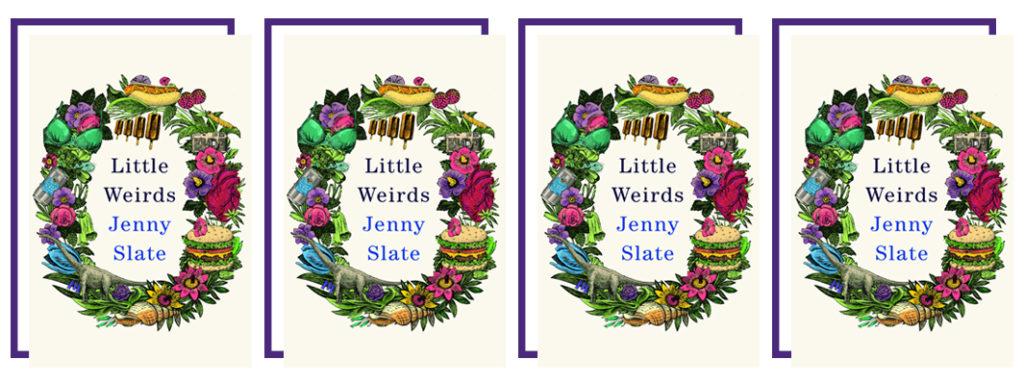
True to the title, Little Weirds is a very weird book. It’s a series of stories, but not really stories, more like vignettes. Jenny Slate (yes, that Jenny Slate!!) writes about growing up in a house haunted by a sea captain, her horniness, friendships, rabbits, and more. Her writing is evocative and distinctive. Little Weirds is, well, weird! But in a delightful, funny, and meaningful way, proving Slate is multi-talented beyond comedy and acting.
Get Little Weirds here.
The Best Young Adult
The Best Jewish YA Novel
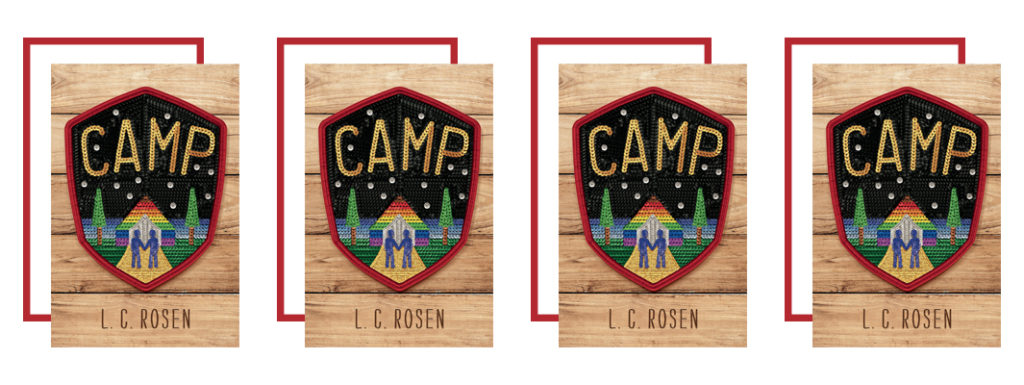
This YA book by L. C. Rosen was the celebratory dose of summer camp love we needed during this hot mess of a pandemic summer. Camp takes place in the LGBTQ Camp Outland, where theater-loving Randy Kapplehoff is determined to finally win over his eternal summer crush, Hudson Aronson-Lim, by transforming himself into “Del” — a masculine, athletic alter-ego. It’s a story about the masks we all sometimes wear, and about how toxic masculinity can creep into the most accepting, queer-friendly spaces. But it’s also a delightful story of summer love between two Jewish boys. With so many summer camps cancelled, it was wonderful to experience the joys of color wars and the thrill of summer camp romance in this queer, sex-positive tale.
Get Camp here.
The Best Jewish YA Nonfiction
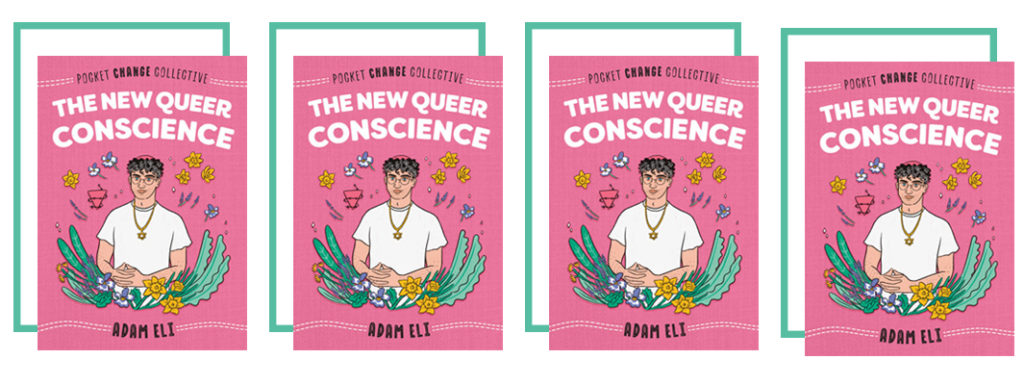
Activist, writer, and Voices4 founder Adam Eli (you may know him from Instagram, @adameli) wrote a book on queerness and activism, and it is absolutely essential for all young people (and old people. And people who don’t identify as “young” or “old”!). The New Queer Conscience is part of the Pocket Change Collective, “a series of small books with big ideas” published by Penguin Teen. Eli draws on his background as an activist, and on his Jewish and queer identities, to write this important manifesto about how “queer people anywhere are responsible for queer people everywhere.” The book is dedicated to his “grandmothers Freda Braunstein, Rita Werner, and all of the women, queer and not, Jewish and not, who make the world go round.” Eli takes his readers by the hand on a journey through his adolescence growing up queer in an Orthodox Jewish community and his own understanding of what being queer means today. Again: essential reading.
Get The New Queer Conscience here.
The Best Visuals
The Best Illustrated Book
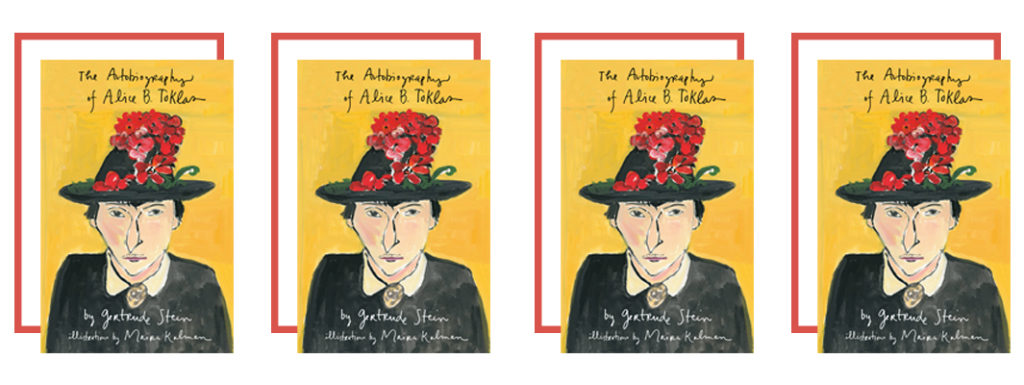
Gertrude Stein — Jewish writer, lesbian American expat in Paris, art collector, and so much more — wrote The Autobiography of Alice B. Toklas in 1933. It was a quasi-memoir written in the voice of Alice B. Toklas, Stein’s life partner.
So why are we writing about a 1933 — er, 5693 on the Jewish calendar — memoir here, in our Almas for 5780? Because this past year, Israeli-American illustrator Maira Kalman brought Stein’s world to life. In her signature style, she added 70 paintings to the memoir, annotating Stein’s words with whimsy and vividness. Here are a few drawings from the book:

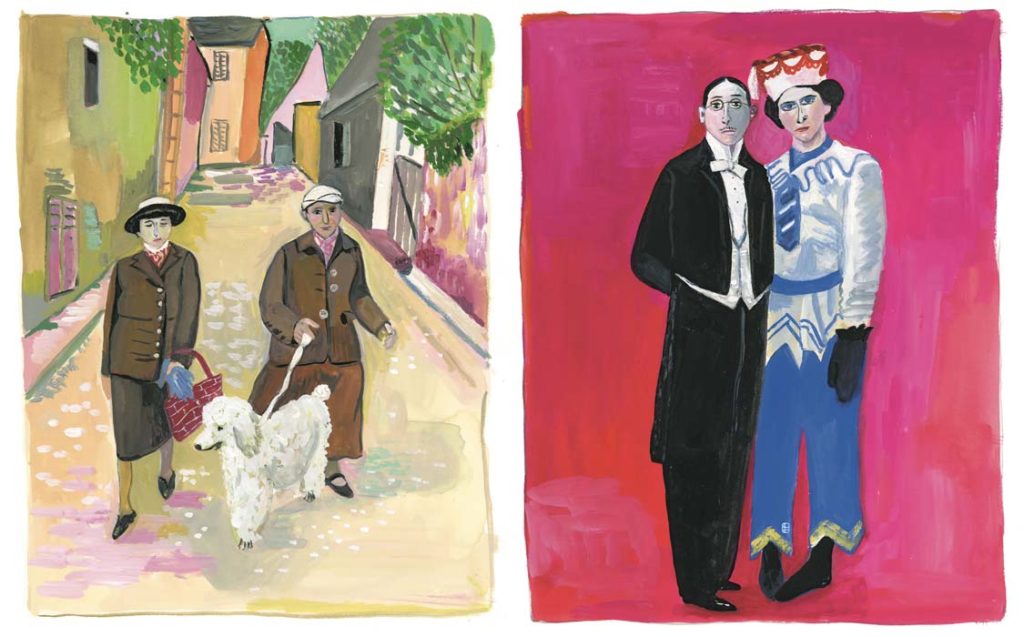
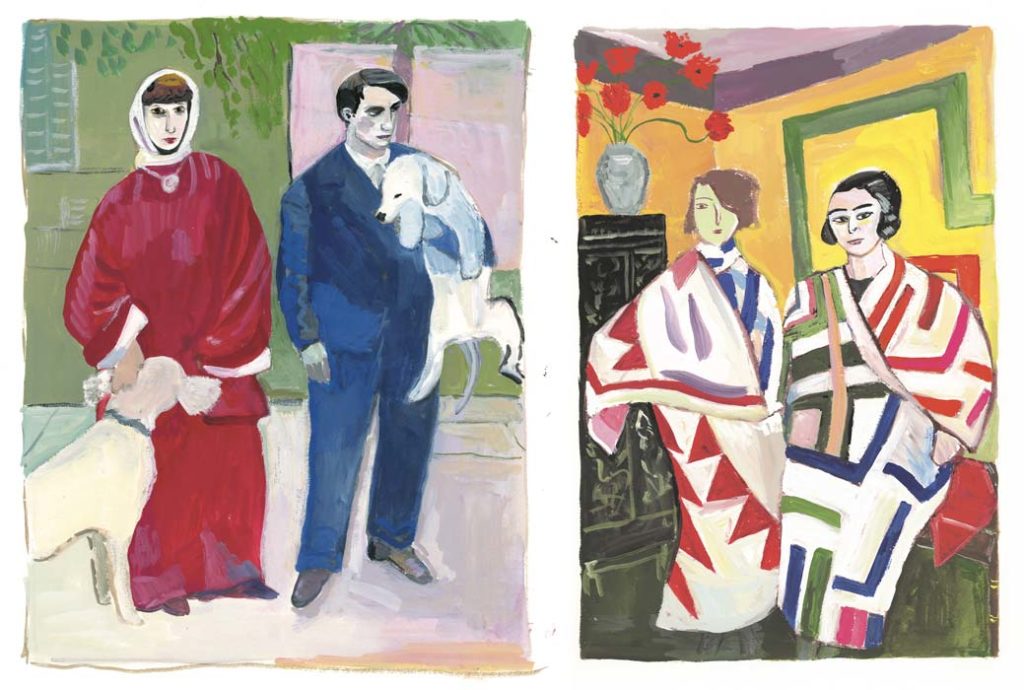
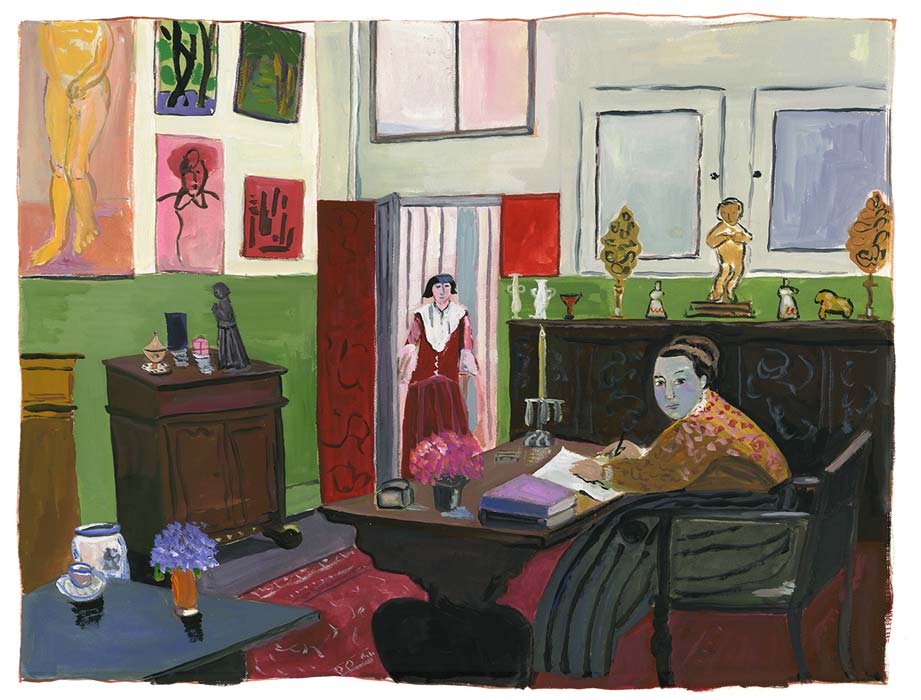
No other words besides: We’re truly obsessed.
Get The Autobiography of Alice B. Toklas Illustrated here.
The Best Cover
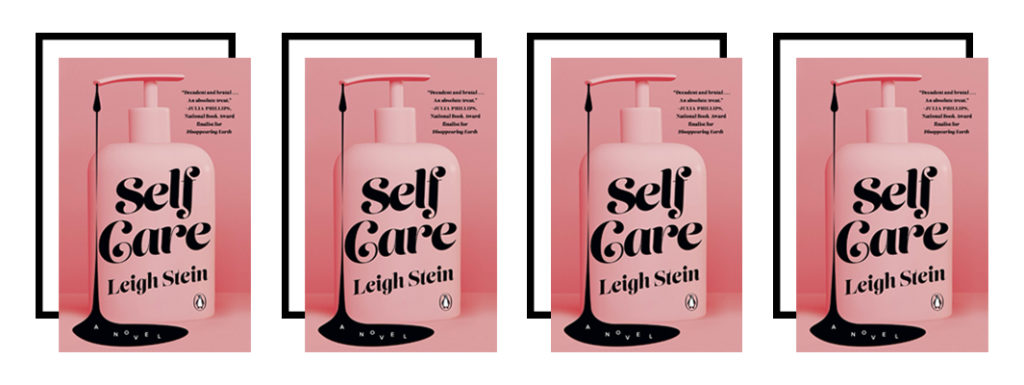
Leigh Stein’s Self Care is a dark, satirical look at what it means to be a millennial woman online — and what it means to capitalize on being a millennial woman online. It’s a fantastic read, and the cover is nothing short of perfection. Designed by Lynn Buckley at Penguin Random House, it features a lotion container that is releasing an ominous black goo. It’s dark and mesmerizing, precisely conveying the tone of the book.
As Stein told Alma, “I love my book cover. I think they did a phenomenal job. I’m not a very visual person, so I didn’t really have an idea of what it would look like. Early on, I made a Pinterest board and I told them, ‘I’m not afraid of pink.’ I didn’t want them to think, ‘Oh, is it sexist to make it pink?’ They exactly communicated what it is and how there’s something dark at the heart of this pink branding.”
Get Self Care here.